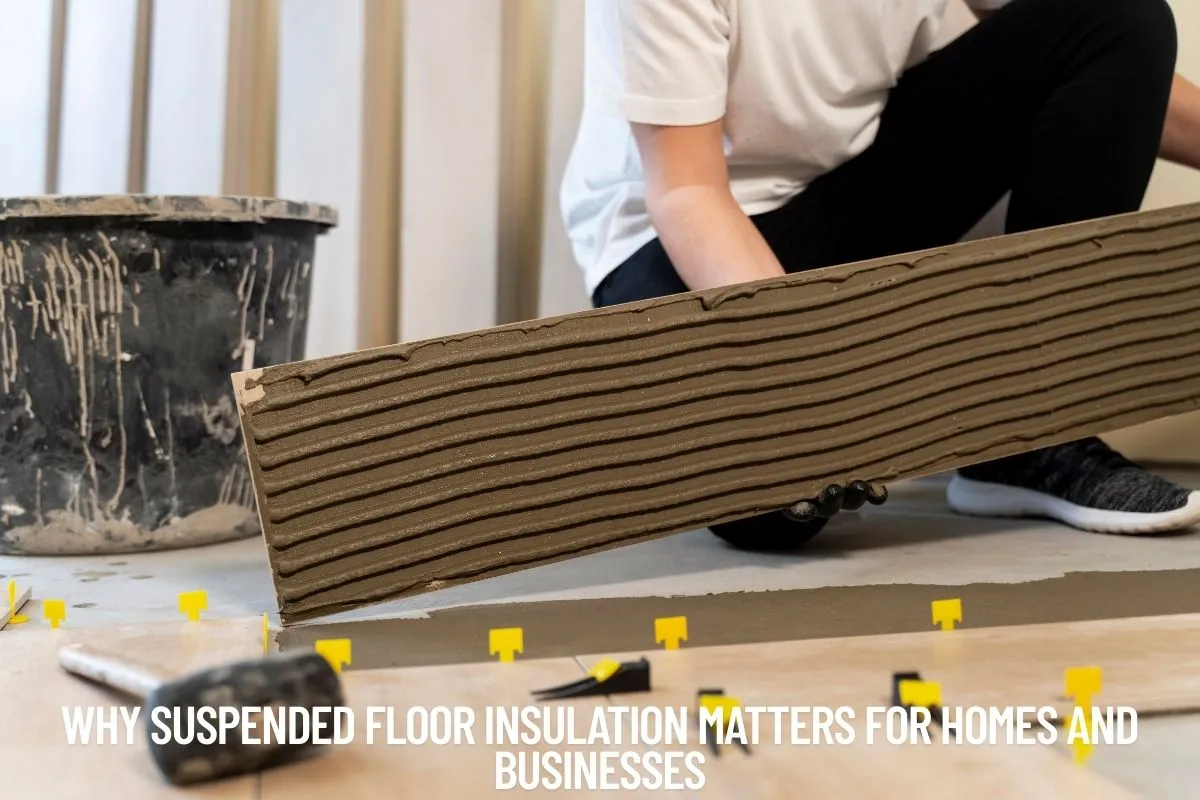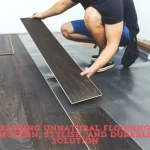When people think about insulation, they often picture lofts, walls, or double-glazed windows. Yet one of the most overlooked areas for energy efficiency is right underfoot: suspended floors. In many UK homes and commercial properties, air circulates beneath timber floors. While this design has structural benefits, it also creates a hidden escape route for heat.
Uninsulated suspended floors can be responsible for up to 15% of a building’s heat loss. This not only increases energy bills but also contributes to cold draughts and uncomfortable living or working environments. For businesses, higher heating costs add to operational expenses, while for homeowners, energy waste impacts both comfort and sustainability goals. Addressing this issue with professional insulation is a practical step toward greater efficiency.
What Is Suspended Floor Insulation?
A suspended floor is typically constructed with joists supporting timber floorboards, leaving a crawl space underneath. Without insulation, cold air flows freely through this gap, reducing internal temperatures and increasing the workload on heating systems. Suspended floor insulation involves filling this space with insulating materials such as mineral wool, rigid boards, or spray foam, depending on the property’s requirements.
This process creates a thermal barrier that prevents heat from escaping downward while still allowing the floor to breathe, protecting the structure from dampness. Done correctly, suspended floor insulation can dramatically improve the overall thermal performance of a building without altering its appearance.
Why It’s Important to Insulate Suspended Floors
The benefits of insulating suspended floors go far beyond lower heating bills. Some of the key advantages include:
-
Energy Efficiency: Reduced heat loss means heating systems work less, cutting energy use and lowering costs.
-
Comfort: No more cold draughts seeping through gaps in floorboards, creating warmer and more consistent room temperatures.
-
Environmental Benefits: Lower energy use translates into a smaller carbon footprint, supporting sustainability.
-
Noise Reduction: Insulation also dampens sound, creating quieter, more peaceful spaces.
-
Health Improvements: Eliminating draughts can reduce moisture buildup and mould, leading to healthier indoor air.
For properties in London and across the UK, where energy efficiency standards are becoming increasingly important, suspended floor insulation is an upgrade that delivers both immediate comfort and long-term value.
DIY vs Professional Installation
Some homeowners may consider insulating suspended floors themselves, but the process is more complex than it may appear. Accessing the crawl space safely, choosing the right materials, and ensuring proper ventilation all require expertise. A poorly executed installation can trap moisture, causing rot, or fail to achieve the desired insulation effect.
Professional installation guarantees that the right materials and methods are used for each property. Specialists understand how to balance thermal performance with ventilation, ensuring the floor remains strong, safe, and effective. They also carry out the work efficiently, minimizing disruption while delivering results that stand the test of time.
Choosing the Right Experts for the Job
Suspended floor insulation is not a one-size-fits-all service. Each property has unique requirements depending on its age, structure, and intended use. That’s why it’s important to work with professionals who combine technical knowledge with practical experience.
A trusted option is the FloorOx company, which offers specialized suspended floor insulation services tailored to both residential and commercial properties. With a focus on high-quality materials and careful installation, FloorOx helps clients achieve warmer, more energy-efficient spaces without compromising structural safety. Their approach combines modern insulation techniques with a deep understanding of flooring systems, making them a reliable choice for property owners looking to reduce energy waste.
How Insulation Contributes to Sustainability Goals
Sustainability is no longer just a buzzword—it’s a necessity. Governments, businesses, and homeowners alike are under increasing pressure to reduce energy consumption and carbon emissions. By preventing heat loss, suspended floor insulation directly supports these goals.
For homeowners, insulation upgrades contribute to higher EPC (Energy Performance Certificate) ratings, which can increase property value and appeal to environmentally conscious buyers. For businesses, demonstrating energy-efficient practices enhances corporate responsibility and aligns with environmental regulations. In both cases, floor insulation is a relatively small change with significant long-term benefits.
Common Concerns and Misconceptions
Despite the clear advantages, some property owners hesitate to insulate suspended floors due to misconceptions:
-
“It’s too disruptive.” In reality, professionals carry out installations with minimal disturbance, often completing projects within days.
-
“It won’t make much difference.” Studies show suspended floor insulation can save hundreds of pounds annually on heating bills.
-
“It might damage the floor.” When done correctly, insulation strengthens rather than harms floor systems, while still allowing ventilation.
-
“It’s only for old houses.” While common in period properties, many modern buildings also use suspended floors that benefit from insulation.
Clearing up these misconceptions helps more people take advantage of the benefits insulation provides.
Beyond Homes: Business and Commercial Benefits
While homeowners enjoy lower bills and warmer rooms, businesses gain equally important advantages from suspended floor insulation. Offices, shops, and restaurants rely on consistent indoor temperatures to create comfortable environments for staff and customers. Insulation reduces reliance on heating systems, cutting operational costs and improving overall sustainability.
For landlords, insulated properties are more attractive to tenants seeking energy efficiency and lower living expenses. In competitive rental markets like London, this can be a key differentiator. Over time, investment in floor insulation pays off not only in cost savings but also in enhanced property value and tenant satisfaction.
A Practical Step Toward Comfort and Efficiency
Suspended floor insulation may not be the first thing people think of when improving energy efficiency, but its impact is significant. By addressing heat loss at its source, property owners can enjoy lower bills, improved comfort, and healthier living or working spaces.
Working with experienced professionals such as FloorOx ensures the job is done properly, with lasting results that protect both your property and your energy budget. In an age where efficiency and sustainability matter more than ever, upgrading your floors with professional insulation is a smart and future-proof investment.










